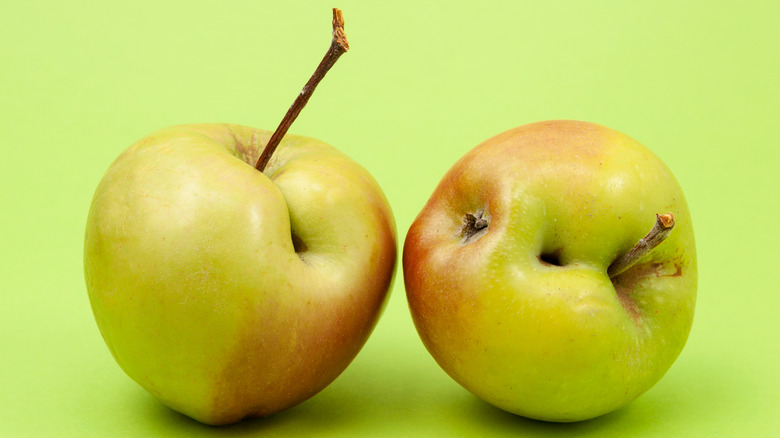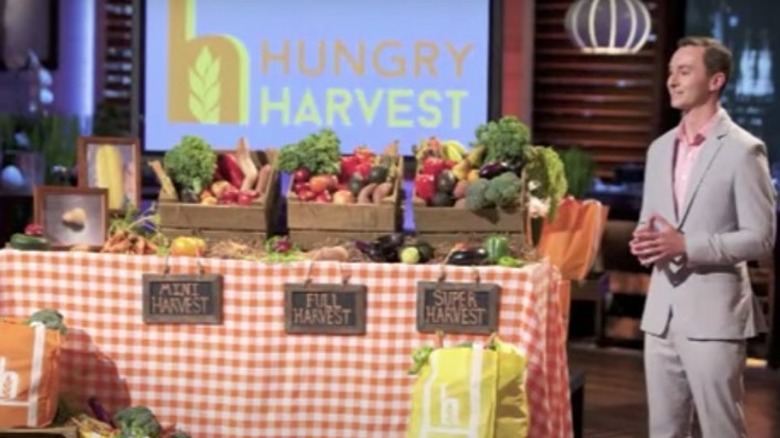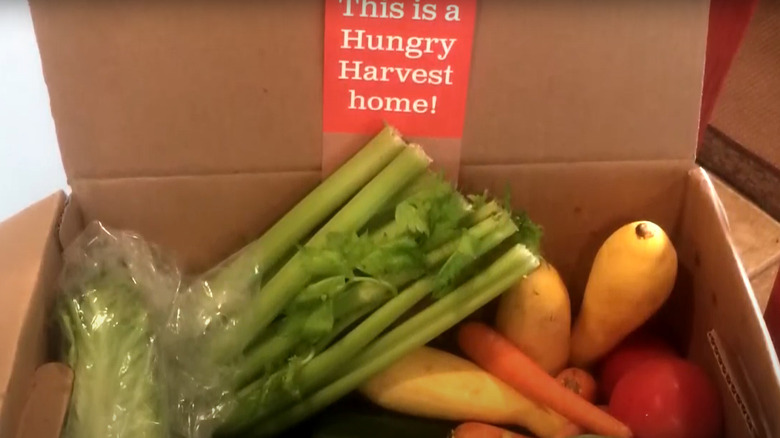Where Is Hungry Harvest From Shark Tank Today?
As the world fills up with more and more people and humankind's demand for resources grows exponentially, restructuring industries in order to emphasize sustainability is becoming increasingly important. Preserving our planet's natural resources will likely become one of the defining issues of the modern world as every aspect of life, from the economy to human health, is negatively impacted by unsustainable agricultural practices.
Many companies have arisen in the contemporary sustainability-conscious marketplace, and some have even attempted to secure an investment on the hit series "Shark Tank."
Obvious Wines, a business centered around producing sustainable spirits, convinced Lori Greiner to invest $160,000. Other sharks accepted a similar offer of $200,000 by Prime 6, a company that makes grilling charcoal from sawdust waste. In the snack sphere of sustainability-centric business boom, Pulp Pantry and its proprietary vegetable pulp chips secured a whopping $500,000 investment. Hungry Harvest is another business that focuses on food waste. By selling unappealing, or perhaps "unappeeling" fruits and vegetables that the average grocery store shopper might overlook, Hungry Harvest saves consumers money while simultaneously promoting sustainability. But was the idea enough to win over the ABC series' titular shark tank?
Hungry Harvest proved too ugly for some sharks
Evan Lutz, the founder of Hungry Harvest, realized that plenty of somewhat unsightly produce is still perfectly delicious to eat. On January 8th of 2015, Lutz brought his ugly produce business, which ships boxes of overlooked fruits and veggies at a discounted rate to consumers, onto "Shark Tank" and received a mixed response from the panel of business-savvy hosts.
When Lutz went on "Shark Tank," he was asking for a $50,000 investment, which would have come with a 5% share of the business. The response that Lutz's pitch inspired from the sharks was far from a feeding frenzy. Lutz started his company with a philanthropic focus — each Hungry Harvest box sold translated to a donation of several pounds of food to those in need. Mark Cuban was unconvinced that an up-and-coming company committing to charitable causes was a sound business strategy and was vocal about his skepticism. Ultimately, Hungry Harvest accepted the investment offer from Robert Herjavec of $100,000 for a 10% share.
Hungry Harvest after Shark Tank
When Mark Cuban insinuated that Hungry Harvest's generous donation program wasn't the most profitable business decision, Evan Lutz agreed wholeheartedly. Though he wore the charitable expense as a mark of pride on his sleeve for some time, a few years after appearing on "Shark Tank," Lutz partially conceded to Cuban, admitting that his donation strategy wasn't flawless. In 2017, Lutz partnered directly with SNAP, the Supplemental Nutrition Assistance Program, and sold thousands of dollars' worth of discounted food to families in need.
This was far from the end of Hungry Harvest's charitable contributions. When COVID-19 left many people struggling to find a steady income stream, Hungry Harvest worked with Johns Hopkins and the University of Maryland Medical System to deliver 65,000 meals to folks in need. Despite doubling down on charitable contributions, Hungry Harvest has proved profitable over the years — in 2020, the company was worth more than $13 million.


